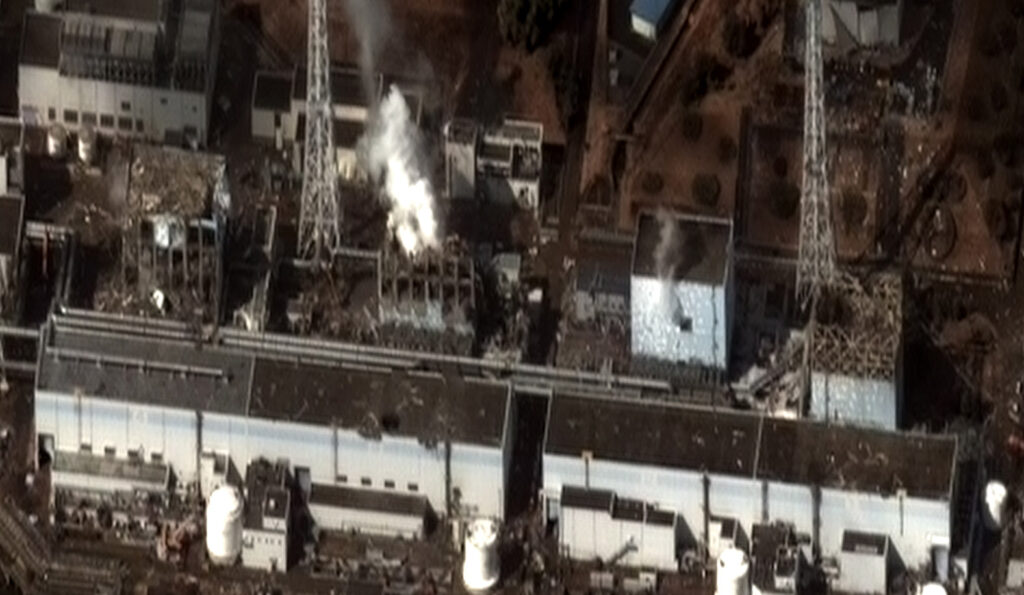
Fukushima nuclear plant: Japan to release wastewater in 48 hours
Japan will begin releasing treated radioactive water from the tsunami-hit nuclear power plant in Fukushima on Thursday (24 August 2023), despite objections from other nations about the move.
The decision to release over 1 million tonnes of treated wastewater comes weeks after the UN’s nuclear watchdog approved the plan.
Since the 2011 Fukushima disaster — when the Tōhoku earthquake and tsunami caused three reactors to melt at the Fukushima Daiichi Nuclear Power Plant in Ōkuma, Japan — some 1.34 million tonnes of contaminated water has accumulated. The wastewater is a mixture of groundwater, seawater and water used to keep the reactors cool.
The water, which has been filtered and stored in about 1,000 tanks, now takes up most of the plant’s grounds. Space is due to run out in 2024.
The only practical solutions ‘are discharge into the sea and vapour release, both of which have preceding practices,’ concluded a governmental advisory committee in 2020.
Japan argues the ocean release is a necessary part of the decades of work required to shut down the facility. The water will be released over 30 years after being filtered and diluted — a plan that the UN’s International Atomic Energy Agency (IAEA) watchdog says will have a ‘negligible’ impact on the environment.

Earthquake and tsunami damage at the Daiichi Power Plant. Image courtesy of DigitalGlobe, via Wikimedia Commons
IAEA chief Rafael Grossi released the findings of the two-year safety review in July 2023, describing it as impartial and scientific.
The majority of radioactive elements have already been filtered from the water, with the exception of radioactive forms of hydrogen and carbon — called tritium and carbon 14, respectively. These isotopes are difficult to separate from water.
“As long as the discharge is carried out as planned, radiation doses to people will be vanishingly small – more than a thousand times less than doses we all get from natural radiation every year,” Prof Jim Smith, who teaches environmental science at the University of Portsmouth, tells the BBC.
A crowd of protesters staged a rally on Tuesday (22 August 2023) outside the prime minister’s official residence, urging the government to stop the release.
The 2011 Fukushima disaster, caused by a magnitude 9.0 earthquake and tsunami in north-eastern Japan, was the worst nuclear accident since Chernobyl.
Nuclear power plants around the world regularly release wastewater with tritium levels above that of the treated water from Fukushima.
Japan’s plan has been opposed by neighbouring countries, including China and South Korea, as well as environmental groups and local fishermen, who say the release will damage their reputation. The Pacific Islands Forum has also criticised Japan for a ‘lack of transparency’, while Beijing has accused Japan of treating the ocean like its ‘private sewer’.
After Tuesday’s announcement, Hong Kong said it would ‘immediately activate’ import curbs on some Japanese food products.
It is reported that South Koreans have stocked up on sea salt ahead of the water’s release, amid food safety fears.
The plant’s operator Tepco says that the levels of ‘most’ radioactive particles meet national standards, following treatment.
The post Fukushima nuclear plant: Japan to release wastewater in 48 hours appeared first on Marine Industry News.
